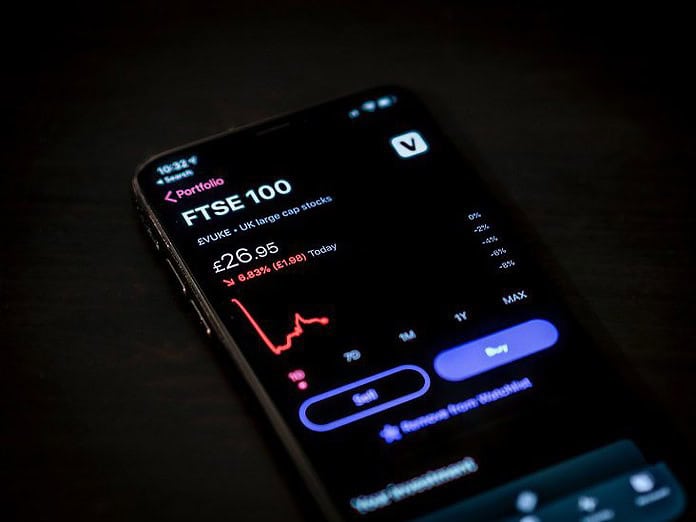Swap contracts are fundamental tools in the financial world, enabling parties to exchange financial obligations to manage risk or capitalize on market opportunities. Whether it’s swapping interest rates, currencies, or commodities, swaps provide a way to hedge against potential losses and stabilize financial outcomes. These contracts play a crucial role in maintaining stability across various financial markets. If you wish to learn about investing with education companies, you might consider visiting these investment firms.
Introduction to Swap Contracts: An Essential Financial Tool
Let’s start with the basics. A swap contract might sound like something out of a spy movie, but it’s a key player in finance. At its core, a swap is just an agreement between two parties to exchange financial obligations.
Think of it as a trade-off. One party might swap a fixed interest rate for a variable one. The reason? To manage risk. Imagine you’re a business owner who doesn’t want to be surprised by fluctuating interest rates—swaps can give you some peace of mind.
But it’s not just about interest rates. Swaps can cover anything from currency to commodities. For example, a company that does business internationally might use a currency swap to guard against sudden shifts in exchange rates. Did you know that the first swap deal was recorded in 1981 between IBM and the World Bank? That’s right! The purpose was to manage currency exposure effectively.
But here’s a question: Why do people agree to these swaps? In many cases, it’s about hedging—protecting against risk. But sometimes, it’s purely speculative, a calculated gamble to gain from future market moves.
Swap contracts might seem complex at first, but they’re all about balancing risk and reward. Dive deeper, and you’ll find these contracts are everywhere, quietly ensuring the wheels of the financial world keep turning smoothly.
Fundamental Mechanics: How Swap Contracts Operate in Financial Markets
Let’s peel back the curtain a bit on how swaps actually work. A swap contract is like a game of “You scratch my back, I’ll scratch yours.” Here’s how it plays out: two parties come to an agreement to exchange cash flows or other financial instruments.
This exchange could happen once or multiple times over a period. Picture two friends betting on the weather, one saying it’ll rain and the other saying it won’t. Whoever is right pays up. That’s a simplified version, but it gets the idea across.
In the financial markets, swaps are used mainly to manage risk or for speculative purposes. But don’t worry—you won’t need a Ph.D. to understand them. In a basic interest rate swap, one party pays a fixed rate, while the other pays a floating rate linked to a benchmark like LIBOR. The goal? To either lock in a certain rate or take advantage of changing rates over time.
Let’s break it down further with an example. Imagine a company with a variable rate loan is worried rates might skyrocket. They enter into a swap with another company that prefers the variable rate exposure.
They both think they’re getting the better deal—one wants stability, the other sees a chance to benefit from potential rate drops. It’s a win-win if their predictions hold. But remember, swaps are contracts, so both sides need to be prepared for all outcomes.
Types of Swap Contracts: A Comprehensive Breakdown
When it comes to swaps, there’s no one-size-fits-all. Just like choosing a pizza topping, you have options, each with its own flavor. The most common type is the interest rate swap, where parties exchange fixed for floating rates or vice versa.
It’s like trading a predictable car payment for one that changes with gas prices. Businesses use these to protect themselves from rising interest rates or to take advantage of falling rates.
Currency swaps are another popular type. Here, parties exchange cash flows in different currencies. This can be a lifesaver for a company with operations across the globe. Imagine a U.S. company doing business in Europe; a currency swap can protect against the dollar weakening against the euro. It’s all about managing foreign exchange risk without constantly buying and selling currency.
Commodity swaps might not be as famous, but they’re crucial for industries dependent on raw materials. Think of an airline company trying to lock in fuel prices to avoid the shock of a sudden spike.
They swap their variable exposure to fuel prices with a fixed price to stabilize costs. And then there are credit default swaps, which are like insurance policies against defaults on loans. If the borrower defaults, the swap seller compensates the buyer.
Have you ever wondered why these swaps are so vital? It’s because they help manage risks in an unpredictable world.
But here’s a tip: Before diving into swaps, it’s wise to consult with a financial expert. Swaps can be powerful tools, but like any tool, they need to be used correctly to avoid getting in over your head.
Conclusion
In conclusion, swap contracts are versatile instruments that help businesses and investors manage risk and achieve their financial goals. By exchanging different types of financial obligations, such as interest rates or currencies, swaps can protect against market volatility and offer strategic advantages. However, due to their complexity, it’s important for anyone considering swaps to fully understand the terms and consult with financial experts to use them effectively.







